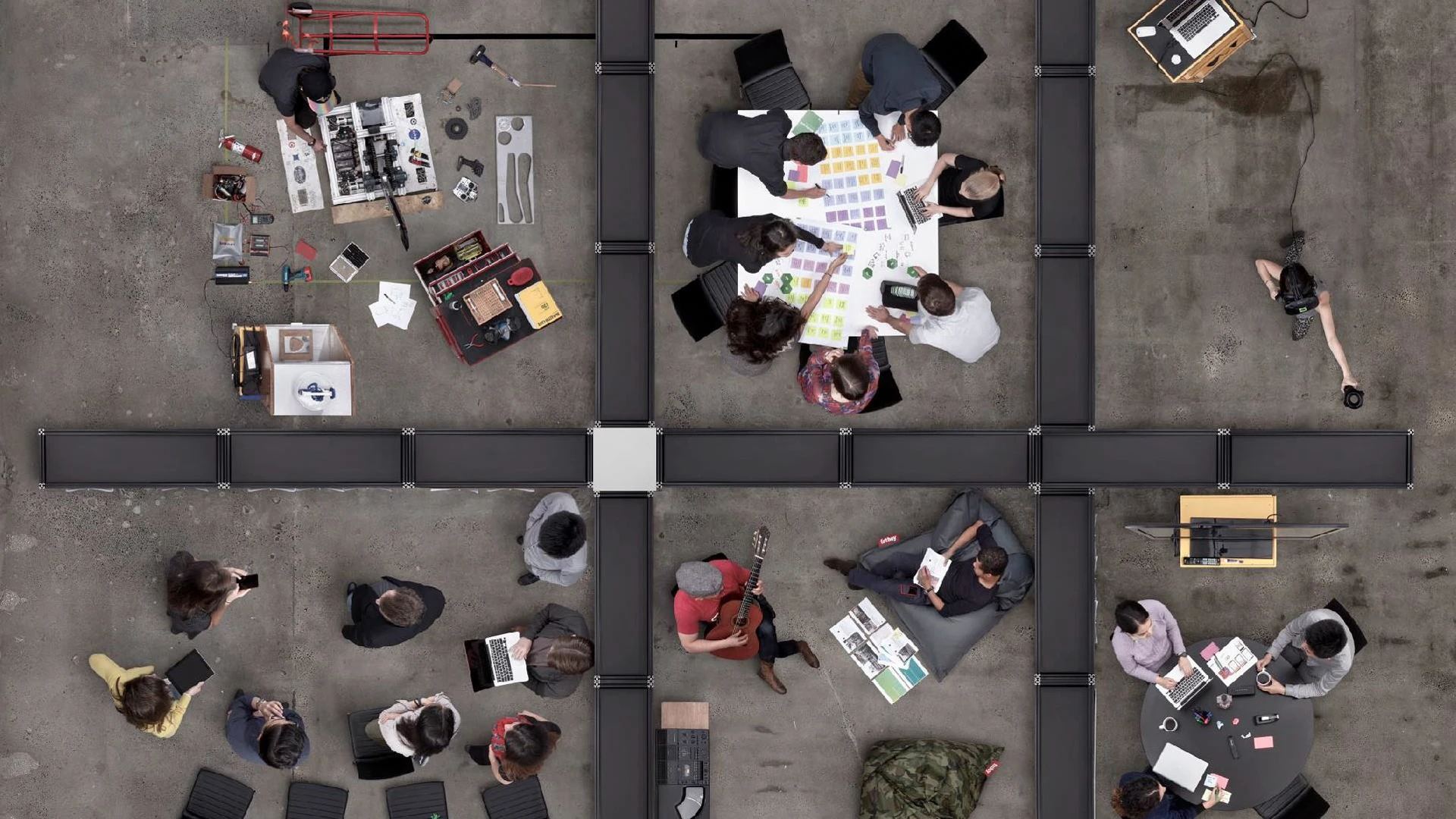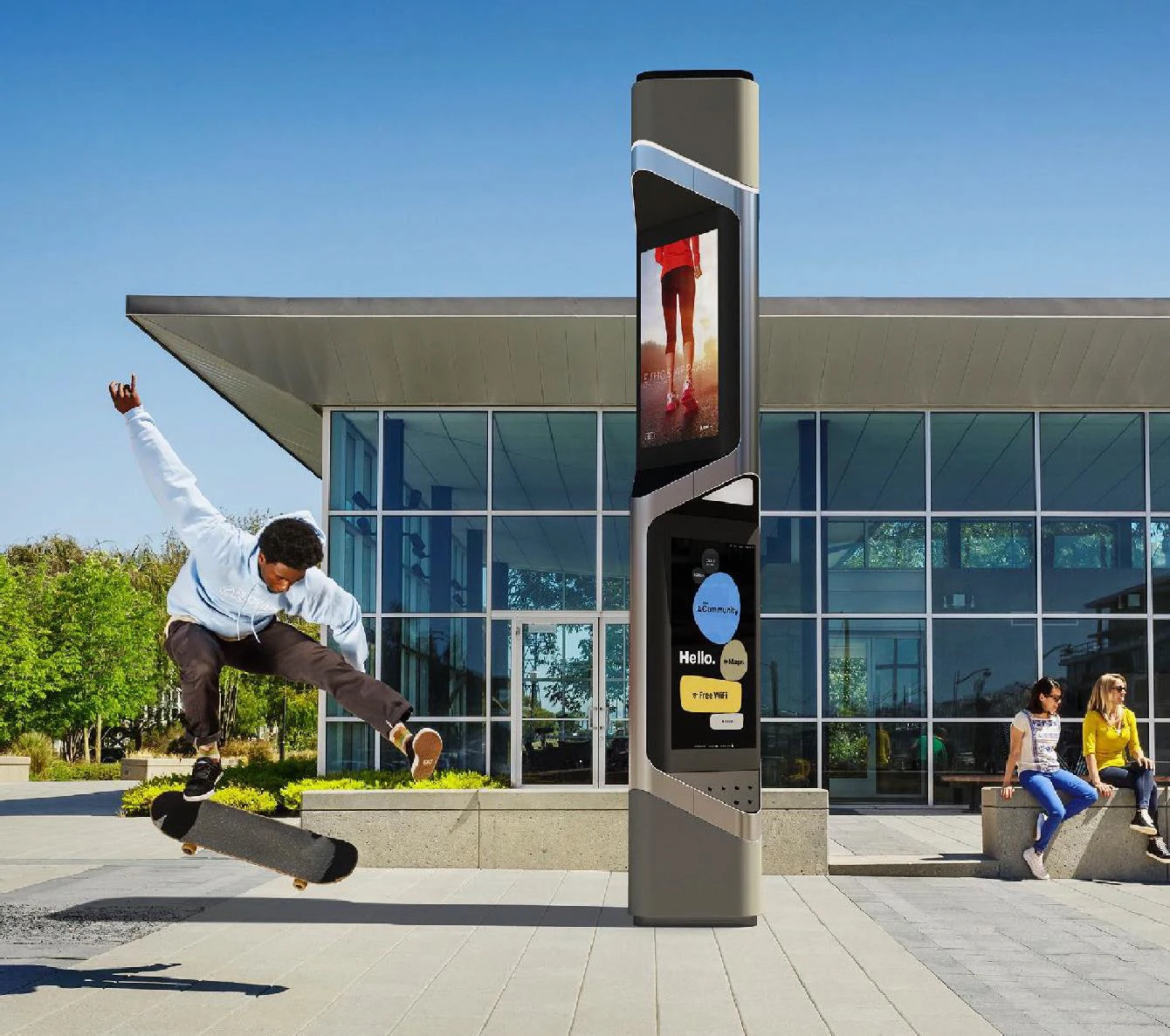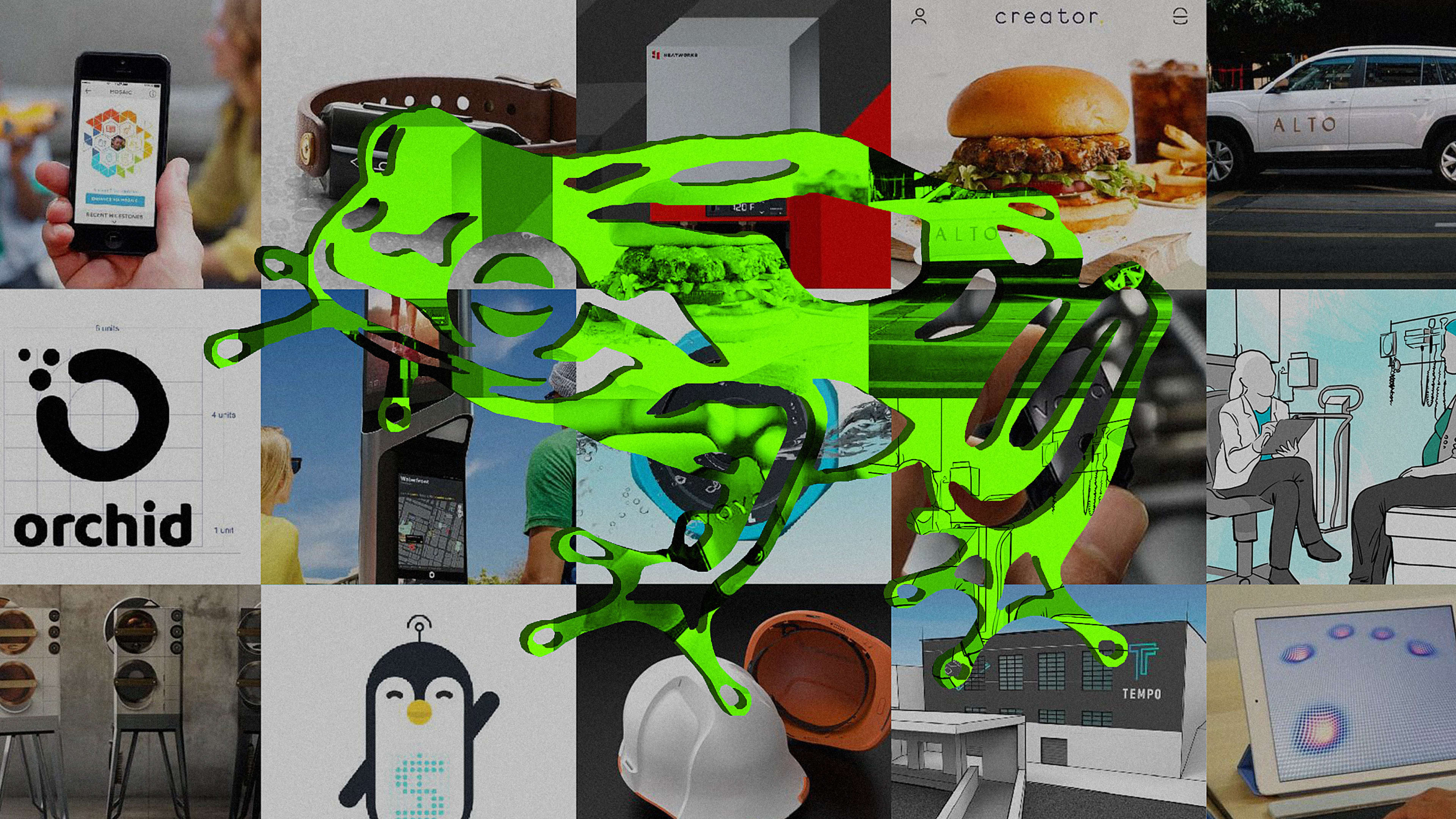In 2013, Andrew Zimmerman received a letter from Facebook’s legal council. Zimmerman had just taken charge as president of Frog, the storied design consultancy that helped bring about everything from the Sony Walkman to the Apple Macintosh. And Facebook had a request that wasn’t really a request: Facebook wanted Frog to waive all IP rights to a conceptual headset it had designed for a burgeoning VR company called Oculus.
Facebook bought Oculus for $2 billion, in part, because of Frog’s work on its landmark headset product. But like most deals signed by design consultancies, Frog had no claim to a piece of this sale. The company was paid a one-time fee for its work with no cut on the future success of Oculus.
“It was an industrial design project, a concept piece, and we got paid $200,000,” Zimmerman says. “I’m thinking, gee, nine months later they’re selling that company for [2] billion dollars! There’s something wrong with this business model!”

Today, Frog is unveiling a brand-new business model, one that will allow the firm to invest in and manage startups with all of the efficiency of a venture capital firm. The company is rolling its own investment incubator FrogVentures into the early-stage VC firm Tuesday Capital. Tuesday Capital is a respected VC firm, known for early-stage investments in companies including Square, Redfin, and Uber. Frog will own a piece of Tuesday Capital’s portfolio, and receive a slate of new clients. Meanwhile, Tuesday Capital gets to add Frog’s perspective, and some free consulting, to its portfolio.
The deal is indicative of the ever-changing nature of the business of a design consultancy. Over the last decade and a half, since Frog founder Hartmut Esslinger sold a majority stake of his company in 2005, dozens of independent design firms have followed suit. Lunar was bought by McKinsey, Fuseproject was bought by BlueFocus, Monotype by HGGC, Fjord by Accenture, Map and Universal Design by AKQA, and Argodesign by DXC Technology—to name a few. Even Ideo, one of Silicon Valley’s most influential design firms, sold a minority stake to Hakuhodo DY Holdings. That’s because while design is a valuable business, the business of design has never been as profitable as the businesses that design enables.
Frog’s journey into venture capital began after the Oculus mishap in 2014, which led Zimmerman to found FrogVentures within Frog, an internal incubator helmed by ex-Frogger Ethan Imboden, to invest design expertise into early-stage startups. Frog would then own a percentage of these companies and make money as all investors do: getting a piece of the pie when the startup sold or went public.

Frog doesn’t report the exact rate of return on the 18 startups it has backed to date, but the company claims its companies have a collective valuation of over $1 billion. Early stars include the smart cities project LQD Wifi, which was acquired by Verizon in 2016 for an undisclosed price, and Heatworks, a fluid heatings company that is in the midst of what Frog says is a multimillion licensing agreement.

To make matters worse, Frog can’t really afford to reinvest into its winners. Since only about 2 in 10 investments pay off in venture capital, it’s just good business that you double down on hit companies in series B rounds. But that’s not an option with Frog’s current structure.
All in all, FrogVentures simply couldn’t float money and effort as long as a true venture capital fund could. Traditional venture capital firms, meanwhile, are often sitting on tens to hundreds of millions of dollars to invest, and also constantly raise new money to invest from third parties. One big payoff, like a Facebook, funds a whole lot of new bets on the table.
So Frog is trying something new. It’s folding all of the current FrogVentures startups into a fund at the VC firm Tuesday Capital. Frog will own a percentage of the fund like any other investor would. Meanwhile, FrogVentures’ Imboden will join weekly meetings at Tuesday Capital, weighing in on decisions and investments the firm makes. (FrogVentures as it’s been since 2014 will still continue to invest in a couple startups a year, but the vast majority of Frog’s startup efforts will be with Tuesday Capital.)
Tuesday Capital will naturally point clients to Frog. This allows Frog to get shorter-term cash revenue via more traditional design work. “It has the added benefit that, frankly, we can afford to [take on] more startups because we’re realizing revenue and profit in [the same] year,” says Zimmerman, who hopes that Frog will invest in anywhere from two to four times as many startups with Tuesday Capital’s help than it would have going solo.
Then, as Tuesday Capital invests more into Frog’s companies, Frog gives Tuesday Capital design vouchers, which is like a credits system that Tuesday Capital portfolio companies can claim for some pro bono design work from Frog.
Interestingly, most FrogVentures portfolio companies agreed to be transferred to Tuesday Capital. And why not? “Zoom in one layer further out, and where we get to now is that everybody is performing a natural act,” says Imboden. “Frog is delivering value to these companies by getting to market faster, reducing risk, building stronger bonds with customers. That’s our core business. We do that all day and night. We’d gotten good at an unnatural act—building and maintaining an investment portfolio—but for [Tuesday Capital] that’s the core business.”
The next few years will be telling to watch as Frog pioneers a new model. If it works, don’t be surprised to see other design firms follow suit. Because it simply doesn’t make sense for a design consultancy to operate paycheck to paycheck when the practice has minted so many billion-dollar companies.
Recognize your brand's excellence by applying to this year's Brands That Matters Awards before the early-rate deadline, May 3.
